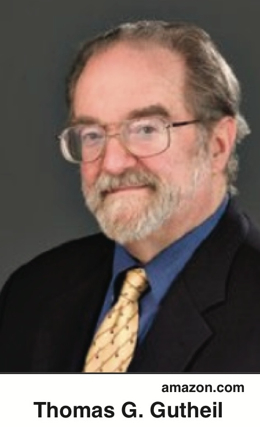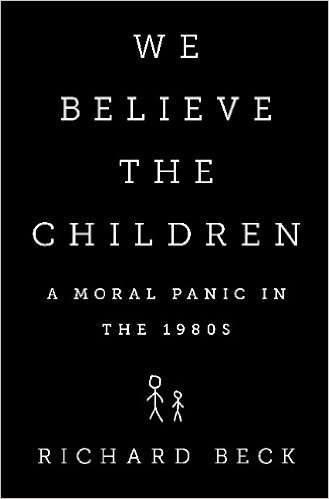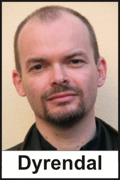Rascals case in brief
In the beginning, in 1989, more than 90 children at the Little Rascals Day Care Center in Edenton, North Carolina, accused a total of 20 adults with 429 instances of sexual abuse over a three-year period. It may have all begun with one parent’s complaint about punishment given her child.
Among the alleged perpetrators: the sheriff and mayor. But prosecutors would charge only Robin Byrum, Darlene Harris, Elizabeth “Betsy” Kelly, Robert “Bob” Kelly, Willard Scott Privott, Shelley Stone and Dawn Wilson – the Edenton 7.
Along with sodomy and beatings, allegations included a baby killed with a handgun, a child being hung upside down from a tree and being set on fire and countless other fantastic incidents involving spaceships, hot air balloons, pirate ships and trained sharks.
By the time prosecutors dropped the last charges in 1997, Little Rascals had become North Carolina’s longest and most costly criminal trial. Prosecutors kept defendants jailed in hopes at least one would turn against their supposed co-conspirators. Remarkably, none did. Another shameful record: Five defendants had to wait longer to face their accusers in court than anyone else in North Carolina history.
Between 1991 and 1997, Ofra Bikel produced three extraordinary episodes on the Little Rascals case for the PBS series “Frontline.” Although “Innocence Lost” did not deter prosecutors, it exposed their tactics and fostered nationwide skepticism and dismay.
With each passing year, the absurdity of the Little Rascals charges has become more obvious. But no admission of error has ever come from prosecutors, police, interviewers or parents. This site is devoted to the issues raised by this case.
On Facebook
Click for earlier Facebook posts archived on this site
Click to go to
Today’s random selection from the Little Rascals Day Care archives….
Click for earlier Facebook posts archived on this site
Click to go to
Today’s random selection from the Little Rascals Day Care archives….
In search of a ‘frank and unblinking appraisal’
 Feb. 20, 2014
Feb. 20, 2014
Following up on the curious case of Richard Noll v. Psychiatric Times, I wrote editor-in-chief James L. Knoll IV to ask about the removal of Dr. Noll’s “satanic ritual abuse” essay from the Psychiatric Times website.
Did the journal plan to address in some fashion the issues raised in Dr.
Noll’s piece? “Unfortunately, I am not at liberty to comment on the situation,” Dr. Knoll replied.
Next I turned to Psychiatric Times’ editorial board, described on the site as “(not) just figureheads with impressive résumés…. They give us their frank and unblinking appraisal of the contents of each and every issue….”
This is from a letter I sent to 22 PT board members:
“I am writing you in response to Dr. Allen Frances’s call for psychiatrists to ‘step forward and do the right thing’ about the profession’s failure to confront the ‘satanic ritual abuse’ claims of the 1980s and early ’90s.
“As you know, Psychiatric Times removed from its website Dr. Richard Noll’s history of the SRA era….
“Dr. Noll concluded by asking: ‘Are we ready now to reopen a discussion on this moral panic? Will both clinicians and historians of psychiatry be willing to be on record? Shall we continue to silence memory, or allow it to speak?’
“How do you, as a member of the Psychiatric Times editorial board, answer these questions?
“Would you now be willing to join with Dr. Frances in formally setting the record straight about SRA and in making amends to the scores of wrongfully prosecuted victims of the moral panic?”
So far I have not been overwhelmed with responses to these questions. In fact, I have received only a single “frank and unblinking appraisal” – from Thomas G. Gutheil, professor of psychiatry, Beth Israel Deaconess Medical Center, Harvard
Medical School.
“I do agree (with Dr. Frances),” he writes. “The 1992 FBI report compiled by Kenneth Lanning should have put an end to this, when he investigated many claimed cases from law enforcement viewpoint and in multiple cases found not a shred of physical evidence, DNA, cells or bloodstains from butchered babies or sacrificed virgins.
“The problem is that social viruses like this are hard to assess and halt, like their biologic counterparts. I agree that individuals, especially in the legal system, should own up to their serious errors and miscarriages of justice, since improved science has blown up many claims, yet some prosecutors (e.g., Martha Coakley in Mass.) have not reversed themselves nor freed the imprisoned.
“However, I am not sure the entire mental health professions should share the blame.”
To be sure, distribution of responsibility among the professions is uneven – the Little Rascals prosecutors called on no psychiatrists at all, only psychologists, off-brand psychotherapists, etc.
At last, book lays bare ‘satanic ritual abuse’ era
 Aug. 10, 2015
Aug. 10, 2015
Since I undertook this blog in 2011, I’ve been waiting for a mass-market book that recalls the “satanic ritual abuse” day-care era with authority, insight and thoroughness.
“We Believe the Children: A Moral Panic in the 1980s” comes pretty darn close to meeting that standard. (I do wish author Richard Beck had addressed the significant post-panic contributions of Richard Noll and Allen Frances.)
I’ll be posting excerpts from the book and later an interview with Beck.
Meanwhile, I’ve been pleased to see the reviews in the news media – so far, all largely appreciative.
“…This book does a devil of a job correcting… all the lies and self-deceptions, so credulously believed in the 1980s….”
– From “Child Abuse Cases Endure as Lessons in Hysteria” by Mark Oppenheimer in The New York Times (Aug. 6)
“ ‘We Believe the Children’ should serve to remind us of the dangers of the ‘we must believe the victim’ mindset in the case of any criminal offense. A faith-based pursuit of justice can lead to a miscarriage of justice.”
– From “What Fueled the Child Sex Abuse Scandal That Never Was?” by Lizzie Crocker at the Daily Beast (Aug. 3)
“ ‘We Believe the Children’ reveals the various combinations of ignorance, venality, arrogance and zealotry that characterized the major players who fueled the moral panic.”
– From “A Very Model Moral Panic” by Carol Tavris in the Wall Street Journal (Aug. 7)
Here also is a radio interview with Beck and – inevitably – a response from witch-hunt denier Ross Cheit.
‘Subculture’ of therapists blamed ritual abuse
 Jan. 16, 2013
Jan. 16, 2013
“Therapists diagnosing Satanic Ritual Abuse as the cause of their patients’ troubles… often belonged to a subculture within the therapeutic community, where focus on dissociation and multiple personalities were more important than among other clinicians.
“This small minority were involved in the vast majority of ritual abuse allegations with a therapy background. Nevertheless, many elements of the ideas, and some of the practices that seem to have been important in creating SRA-narratives were common among therapists of all kinds: belief in the concept of repression, a view of memory as analogous to a video-tape or computer and (confidence) that hypnosis could be an important tool in unearthing forgotten abuse. This view of memory and memory recovery has been largely dismissed among the community of cognitive psychologists.”
– From “Psychology and the Satanic Ritual Abuse Controversy. A Brief Research Review” by Asbjørn Dyrendal in Skepsis (March 2, 2007)
Cable head Wendy Murphy strikes (out) again…
 June 18, 2014
June 18, 2014
“I was disappointed to see that one of the most celebrated cases of this time was mentioned in (Ross Cheit’s) book but not analyzed. The Little Rascals case from Edenton, N.C., was the focus of a documentary by well-known filmmaker Ofra Bikel, whose reputation was challenged by her film, ‘Innocence Lost.’
“Bikel opined that the owners of the Little Rascals Day Care center were railroaded by children who made wildly incredible claims. For example, Bikel showcased the testimony of a little girl who said she’d been molested on a spaceship. When asked on cross-examination whether the spaceship was ‘real,’ the child said ‘yes.’ Bikel omitted crucial context on that. On re-direct examination about the spaceship the little girl explained that the day care center had taken the kids to a carnival and that the child had been molested on one of the spaceship rides.
“That particular story isn’t in this book, but it is packed with many like it. Even the most skeptical reader will find it difficult to deny that they were snookered by the media coverage to some extent, which means someone owes an awful lot of abused children an apology.”
– From “ ‘Witchhunt Narrative’ Retells ’80s Day Care Abuse” by Wendy Murphy at WeNews (May 23, 2014)
If you know Wendy Murphy from her frequent appearances on cable news channels, variously labeled as “legal expert,” “former sex crimes prosecutor” or “victims advocate,” then you aren’t surprised to see her so confidently weigh in on Cheit’s book. Neither are you surprised to see her so casually disdain the facts of the case. Take, for instance, her analysis of the Duke lacrosse case: “I never, ever met a false rape claim, by the way. My own statistics speak to the truth.”
See also “Why Cable News Never Punishes Liars” by Alex Pareene at Salon (Aug 12, 2010) and “The Wendy Murphy File”at Durham-in-Wonderland (Dec. 31, 2006).
So Ofra Bikel’s “reputation was challenged” by “Innocence Lost”? What does that mean? The same “Innocence Lost” that led to her winning a John Chancellor Award, a duPont-Columbia Award and an Emmy?
Murphy then cherry-picks the spaceship anecdote as if the child’s having earlier visited a carnival somehow confirms that she “had been molested on one of the spaceship rides.”
Was the carnival similarly responsible for Witness A’s testifying that Kelly put a candle and a burning flower stem in his “number two”…. that he was on a tugboat with Kelly…. that Kelly tried to shoot an apple off another child’s head….that he and the other child were hung up in a bag in a tree?….
And was it responsible for Witness B’s testifying that Kelly made him put a Magic marker in another child’s butt… that Kelly tried to push him onto a fire in the woods…. that he saw a lion and a “real bear” in the woods…. that Betsy Kelly ran around the day care brandishing a knife?…..
And what about Witness C’s testifying that Kelly put his gun in her mouth…. that Kelly gave her pills that made her sleepy….. that another day-care worker beat four babies until blood came out of their eyes?….
Must have been some carnival.











0 CommentsComment on Facebook